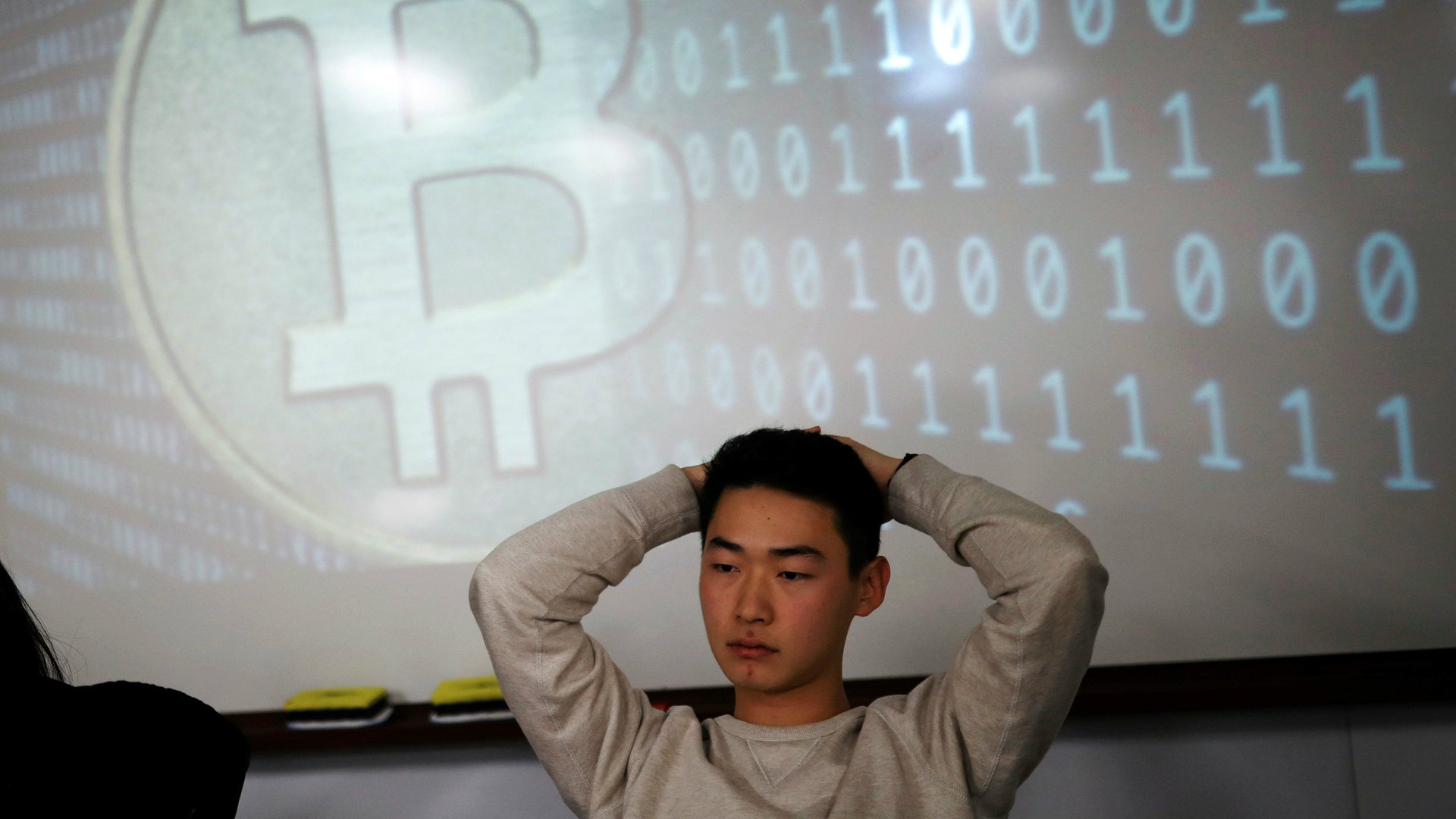South Korea is walking back threats to ban cryptocurrency trading
South Korea’s Office for Government Policy Coordination issued a statement today (Jan. 15) suggesting that a cryptoasset crackdown in the country will not necessarily come imminently. That would come as relief to the bitcoin-mad country.


South Korea’s Office for Government Policy Coordination issued a statement today (Jan. 15) suggesting that a cryptoasset crackdown in the country will not necessarily come imminently. That would come as relief to the bitcoin-mad country.
“The proposed shutdown of exchanges that the justice minister recently mentioned is one of the measures suggested by the justice ministry to curb speculation. A governmentwide decision will be made in the future after sufficient consultation and coordination of opinions,” the office said in a statement.
The office’s remarks backtrack from recent measures taken by the government, which signalled a clampdown on cryptocurrency trading would arrive shortly.
On Jan. 11 police raided the offices of Coinone and Bithumb, two of the country’s largest cryptocurrency exchanges on suspicions of tax evasion. That same day, justice minister Park Sang-ki said that the government was preparing a bill that would ban trading on domestic cryptoasset exchanges.
South Korea is a hotbed for bitcoin and other cryptocurrencies, and accounts for an estimated 20% of global bitcoin transactions. Many Koreans are have placed sizeable portions of their savings in cryptocurrency because the country lacks high-yield investment options (paywall) for ordinary consumers. One recent survey revealed that three out of ten salaried workers in South Korea have invested in cryptocurrencies.
Panic over a potential crackdown in South Korea is one factor that has caused bitcoin’s price to tumble since surpassing $19,000 last year. On Dec. 28, the currency lost over $1,000 in value when the South Korean government issued a statement warning “virtual coins cannot play a role as actual currency and could result in high losses due to excessive volatility.”
The government’s latest statement suggests that people and organizations within the South Korean government may not see eye to eye on how to deal with the boom in cryptoassets.
Furthermore, the case of China shows that such bans can’t do much to curb trading in the first place. When Chinese authorities called for domestic exchanges to halt trading, some began relocating overseas, while many traders used apps like Telegram to make trades “over-the-counter,” or directly with one another without an intermediary.